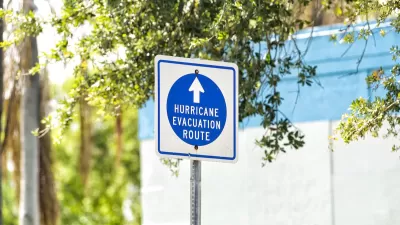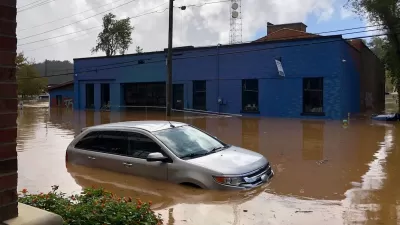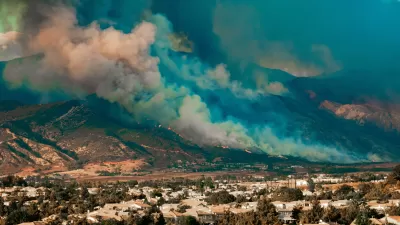Black Americans are flocking to southern states, but many popular destinations face growing threats from extreme weather.

An article for Capital B and republished in Inside Climate News by Adam Mahoney draws attention to a growing conundrum: as more Black Americans move to the South in search of affordability and good weather, they are increasingly at risk from climate disasters like hurricanes and wildfires. “Over the past decade, Texas and Florida, two states known for hurricanes and extreme heat waves – but mild winters – have seen the most new residents as roughly a third of relocating Americans say ‘better weather’ is the reason for their moves.”
As Mahoney explains, 94 percent of the nation’s Black population growth since 2020 has occurred in the South. Meanwhile, “The country’s most climate vulnerable counties are concentrated in the Southeast, according to the most comprehensive climate risk data available.” Since 2016, more than half of major weather-related power outages happened in Southern states.
“For Black folks, this presents a unique set of considerations — and challenges. It seems that in the attempt to escape the environmental racism and the poor health outcomes of the North and Midwest, Black people are essentially moving toward the epicenter of climate disasters, says Rhiana Gunn-Wright, the director of climate policy at the Roosevelt Institute.” According to research, Black Americans experience disparate outcomes from their white counterparts during disasters and recovery. “Even when Black residents receive recovery aid, white people who receive the same amount of federal assistance see their wealth rise, while Black residents see their wealth decline following disaster, a study by Rice University found.”
FULL STORY: Moving South, Black Americans Are Weathering Climate Change

Planetizen Federal Action Tracker
A weekly monitor of how Trump’s orders and actions are impacting planners and planning in America.

Map: Where Senate Republicans Want to Sell Your Public Lands
For public land advocates, the Senate Republicans’ proposal to sell millions of acres of public land in the West is “the biggest fight of their careers.”

Restaurant Patios Were a Pandemic Win — Why Were They so Hard to Keep?
Social distancing requirements and changes in travel patterns prompted cities to pilot new uses for street and sidewalk space. Then it got complicated.

Platform Pilsner: Vancouver Transit Agency Releases... a Beer?
TransLink will receive a portion of every sale of the four-pack.

Toronto Weighs Cheaper Transit, Parking Hikes for Major Events
Special event rates would take effect during large festivals, sports games and concerts to ‘discourage driving, manage congestion and free up space for transit.”

Berlin to Consider Car-Free Zone Larger Than Manhattan
The area bound by the 22-mile Ringbahn would still allow 12 uses of a private automobile per year per person, and several other exemptions.
Urban Design for Planners 1: Software Tools
This six-course series explores essential urban design concepts using open source software and equips planners with the tools they need to participate fully in the urban design process.
Planning for Universal Design
Learn the tools for implementing Universal Design in planning regulations.
Heyer Gruel & Associates PA
JM Goldson LLC
Custer County Colorado
City of Camden Redevelopment Agency
City of Astoria
Transportation Research & Education Center (TREC) at Portland State University
Camden Redevelopment Agency
City of Claremont
Municipality of Princeton (NJ)





























